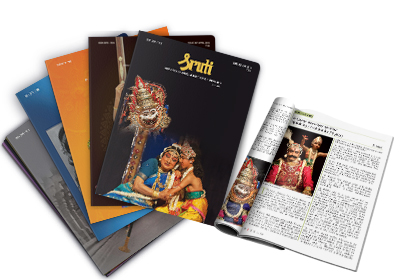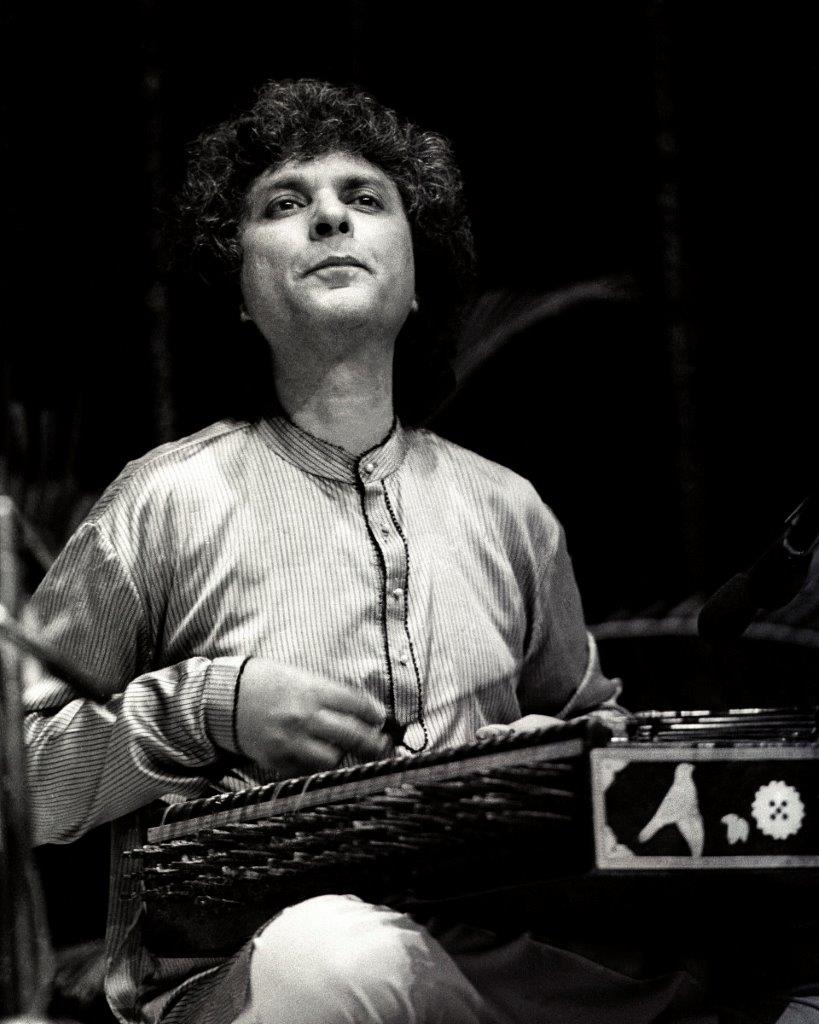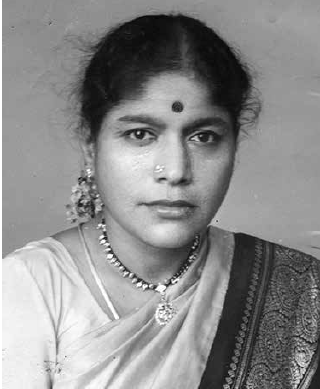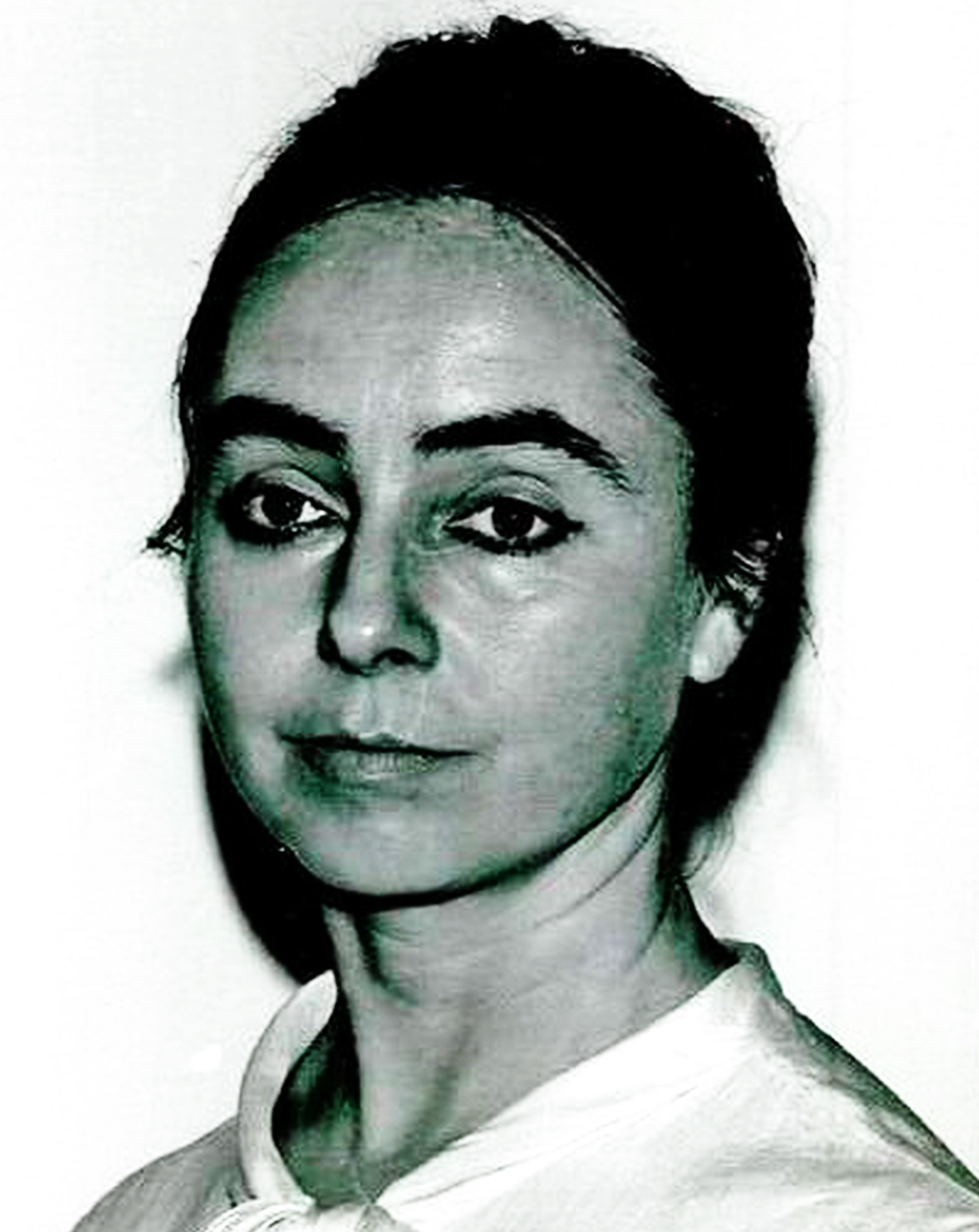Pt Shiv Kumar Sharma was born on 13 January 1938 to Siva ‘bhakt’, musician Umadatt Sharma after nine agonising years; his father had huge expectations from him, and despite his obvious talent in the tabla, persuaded him to play the obscure folk instrument—the santoor. He forecast that the santoor would do much for his son, and this indeed happened—the santoor is today one of the most popular instruments on the north Indian classical music stage, and its name is inextricably linked with maestro Shiv Kumar Sharma. The journey with the santoor was a long and arduous one—Shiv Kumar spent ten years modifying the instrument physically to enhance its tonal quality and volume. Apart from playing it on the lap, he introduced more bridges, removed some strings, added some more, changed the hold of the walnut wood “kalams” and much else. His first public performance was in Mumbai, at the Swami Haridas Sangeet Sammelan where Maharaja of Kashmir, Dr. Karan Singh got him a concert slot. Apparently, he played a tabla solo for twenty minutes, then a solo on the santoor, accompanied by none other than tabla maestro Shankar Ghosh. This was in 1955, when he was a mere 17-year-old.
Vidwan S. Shankar is a popular Carnatic vocalist and teacher in Karnataka. With an impressive career of more than five decades, he has carved a niche for himself through his public concerts and the medium of radio and television. A traditionalist to the core, he has admirers across the globe and has imparted training to many students who are acclaimed performers. Endowed with a powerful and pleasing voice, he impresses his listeners with his clear pronunciation of lyrics, with pauses at the appropriate places. Born on 27 November 1950, in Jog—the famous waterfall town—where his father G.V. Shastry was working with the Mysore State Electricity Board, Shankar started learning music from his mother Rajamma when he was eight, he was also guided by Nagarathna Bai. He later had his advanced training from Vallabham Kalyana Sundaram, sister of Mayuram Viswanatha Sastry, the famous composer. A long-time resident of Bengaluru, Shankar spent his childhood days in Malleswaram and later shifted to Shankarapuram, both old localities in the city. He fondly remembers many concerts he attended at the Malleswaram Sangeetha Sabha, which paved the way for him to become a performing musician. Listening to the music of stalwarts is also a part of learning, and Shankar acknowledges that the concerts of Ariyakudi Ramanuja Iyengar and Madurai Somasundaram, which he attended there, remain etched in his memory.
Veteran Bharatanatyam guru Indira Rajan passed away on 29 April 2022 in Coimbatore. She had an illustrious career as an accomplished Bharatanatyam exponent, teacher and nattuvangam artist for over seven decades. She was decorated with many honours and awards, including Natya Kala Ratnam (1976), Kalaimamani (1991), the Central Sangeet Natak Akademi award (1996), Acharya Choodamani (2004), Guru Award from Natyarangam/ Narada Gana Sabha Trust (2007), Natya Kalanidhi from ABHAI (2017) and the E. Krishna Iyer Medal from The Sruti Foundation (2016). (See cover story in Sruti 378, March 2016). I shared a special bonding with “Indira teacher” as I addressed her, who was a glorious torchbearer of the Pandanainallur natya sampradaya. Indira Rajan, the renowned dancer, choreographer, teacher, and a brilliant nattuvangam exponent, moulded hundreds of students in India and abroad and earned a unique name and fame for her long years of ‘natya seva’. In the male-dominated nattuvangam field, Indira Rajan stood as a versatile female nattuvangam exponent who faced innumerable challenges. Her grit and tough nature gave her the strength to fight all obstacles in her artistic career throughout her life.
Milena Salvini, who died in Paris on 25 January 2022 due to Covid, played an essential role in introducing Kathakali and Koodiyattam to the West and was the only foreigner to receive the honorific of Padma Shri for Kathakali. My acquaintance with Milena Salvini began in 1990. Ever since we have had close interactions during her visits to Kerala. We would either meet under the trees close to the Vallathol samadhi at Kerala Kalamandalam’s old campus, or at the dining table at Ramanilayam in Thrissur, or at my house. We discussed many things on art-related topics. She was like an elder sister to young artists and people like me. Dance, her inborn passion Milena was born on 23 April 1933 in Milan, Italy, to Italian urologist Pietro Salvini and Suzanne Mercier, a French pianist. She lost her father when she was one, and her mother returned to Paris along with Milena and her elder brother. Her innate passion for music and dance nurtured her personality and gave her the energy to take up and implement challenging decisions with courage.
CONTENTS Vol.
29 Issue 6 June 2022
6 News & notes
12 Birthday calendar
14 Shiv Kumar Sharma
24 Class act v Bangalore S. Shankar
29 Tributes v Indira Rajan v Milena
Salvini
35 News & notes (continued)
41 Bookshelf
42 From the Editor
Front
Cover: Shiv Kumar Sharma
No.
453




.jpg)

